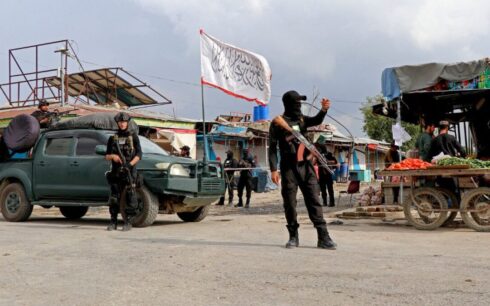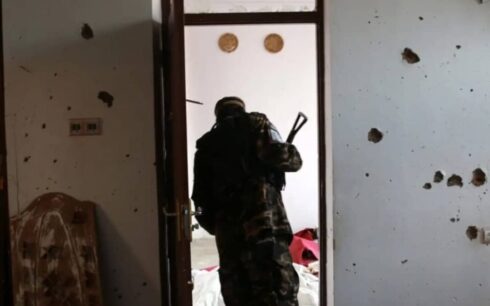KABUL — On the eighth anniversary of one of the deadliest attacks in the country, families of victims are calling for international accountability, urging global courts to prosecute those responsible for the 2017 bombing near Zanbaq Square in central Kabul.
The attack, which occurred on May 31, 2017, involved a tanker truck packed with explosives that detonated near Germany’s embassy and other diplomatic offices in downtown Kabul, which was one of the most heavily guarded zones of the capital. The blast killed at least 150 people and injured more than 400, most of them civilians, including women and children.
No group officially claimed responsibility, but the previous Afghan government blamed the Haqqani network, which has long operated under the umbrella of the Taliban. The Taliban and Haqqani leaders never confirmed nor denied involvement, though the group has claimed responsibility for numerous suicide bombings that resulted in high civilian casualties during the two-decade war.
“The Taliban were behind many of the bombings that killed thousands of our people,” said a Kabul resident who lost relatives in the attack. “They must be held accountable. Justice must be served.”
Another resident added, “We remember every explosion, every victim. Those responsible for the Zanbaq bombing should face trial — not be in charge of the country.”
The Taliban returned to power in 2021 after the collapse of the U.S.-backed government, raising deep concerns among human rights advocates and survivors of past violence who fear that accountability for wartime atrocities remains elusive.
“This was a war crime,” said Bismillah Taban, a former Afghan military officer. “The Taliban used every means to inflict harm on civilians. The Zanbaq bombing is just one example.”
Human rights activist Azita Nazimi recalled the day vividly. “I remember the horror — hundreds of bodies, smoke, and chaos,” she said. “The Taliban claimed many innocent lives that day. The perpetrators must be brought before an international court.”
The United Nations has not launched a formal investigation into the attack, and with the Taliban now in control, domestic avenues for justice are nonexistent. Rights groups argue that the international community must step in.
“This wasn’t just an attack on Kabul,” said one advocate. “It was an attack on humanity. If the world ignores it, justice will remain out of reach for those who lost everything.”
Eight years later, the pain remains raw for families of the victims. For many in Kabul, the memory of that day — and the image of the city’s streets soaked in blood — has never faded.





